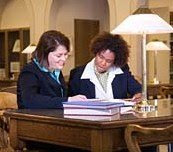March 8 is International Women's Day!
This day is commemorated worldwide, and although it started in the United States, it is no longer acknowledged here. The rest of the world, however, celebrates this day of sisterhood, empowerment, and recognition of the critical roles of women socially and economically.
Worldwide, women face oppression and social injustice in ways that men do not. On March 8, we take the time to remember how far women have come and far there is yet to go.
 Photo UNHCR
Photo UNHCRThis year's United Nations theme for International Women's Day is "Equal Rights, Equal Opportunities: Progress for All." This follows what a large body of research has already shown: When women are empowered, when they have more opportunities and choices related to their future and well being, entire communities benefit. Previous posts on this blog visited on this topic when we wrote about Nicholas Kristof's project,
Half the Sky, and work of the Girl Effect project at
http://www.girleffect.org/.
Many organizations have events scheduled for International Women's Day, including UNHCR. According to the UNHCR's Website:
In any refugee population, approximately 50 percent of the uprooted people are women and girls. Stripped of the protection of their homes, their government and often their family structure, females are often particularly vulnerable. They face the rigours of long journeys into exile, official harassment or indifference and frequent sexual abuse - even after reaching an apparent place of safety. Internally displaced women often suffer similar experiences.
In the last few years, UNHCR has developed a series of special programmes to ensure women have equal access to protection, basic goods and services as they attempt to rebuild their lives. Special attention is given to forcibly displaced women who may face risks because of their specific circumstances, such as pregnant and lactating women, older women, and female heads of households
Women are active and positive change agents - when given the proper resources - and are capable of improving their lives and the lives of their children, families and communities.
Here is an excerpt from the A Little Something blog that details interesting projects focusing on women's empowerment:Weaving together a community of hope
The United Nations High Commissioner for Refugees Website currently features a story about a weavers' co-op in Bangladesh. Ethnic Chin refugee women from Burma are using their traditional weaving skills to earn their own money instead of depending on handouts from UNHCR or local Bangladeshis. the goal of the program is to empower the refugee women in the co-op as well as to help them become self-sufficient in a country where it isn't easy to do so. When women have their own money and they have the leeway to make choices for themselves, their families benefit, as well. This project rings a familiar note for us at A Little Something since our goals and beliefs are very much the same.
Click here to read the entire story.
The Blue Sweater The Blue Sweater: Bridging the Gap Between Rich and Poor in an Interconnected World
The Blue Sweater: Bridging the Gap Between Rich and Poor in an Interconnected World is author Jacqueline Novogratz's memoir of a life spent trying to understand and document global poverty. From her Website,
thebluesweater.com,
It all started back home in Alexandria, Virginia, with the blue sweater, a special gift that quickly became her prized possession—until the day she outgrew it and gave it away to Goodwill. Eleven years later in Africa, she spotted a young boy wearing the sweater, with her name still on the tag inside. That her garment had made it all the way to Kigali, Rwanda, where she was helping a group of African women start a micro-finance bank, was ample evidence of the way we are all connected, and how our actions—and inaction—touch people every day
across the globe, people we may never know or meet. This awareness continues to
drive her efforts to fight poverty, and to bridge the gap between rich and poor.
Novogratz has managed to tie together her experience as a venture capitalist in developing nations with her idealism and optimism into a story that will inspire readers to look for ways to effect real change.
Women Leading for LivelihoodsImagine our surprise at coming across this project on the United Nations High Commissioner for Refugees Website. It was like reading a page from our own book, another telling of the A Little Something philosophy:
This UNHCR initiative is aimed at promoting the economic independence and
empowerment of refugee and displaced women and girls around the world. For WLL, women are not victims or passive recipients of aid; with access to the proper
resources, they are capable of changing their lives and those of their children,
families and communities.
Refugee and displaced women face a series of barriers to work: legal restrictions, physical and psychological trauma, lack of financial resources, child care issues, the wrong skills for their environment, and much more. WLL aims to break down these barriers through the funding of a full range of programmes aimed at empowering refugee and displaced women. Projects range from language and vocational training to classes on farming , marketing and computer literacy as well as basic courses in finance and how to get access to business centres and savings and loan schemes.
Read more about Women Leading for Livelihoods
here.

Photo: UNIFEM
The Women’s Crusade
 The liberation of women could help solve many of the world’s problems, from poverty to child mortality to terrorism.
The liberation of women could help solve many of the world’s problems, from poverty to child mortality to terrorism.
In August of this year, New York Times journalist Nicholas D. Kristof and and investment banker Sheryl WuDunn wrote an extensive article about the plight of women struggling to survive and get a foothold on basic human rights throughout the developing world. Thanks to the availability of micro-finance business and development programs, women are making progress toward a better life, one at a time. The article points out the powerful effects of micro-finance projects and specifically addresses the benefits to women in parts of the world where they often suffer the most and have the fewest rights. With structured programs, small loans, and the opportunity to begin entrepreneurial ventures, women are changing lives far beyond their own.
To access the entire article, click here.
The article includes an audio slide show and a short video about women who are newly empowered and whose lives are being transformed by their participation in the micro-finance movement. Additional information about the Kristoff and WuDunn's Half the Sky Movement (get involved!) can be found here.

Finally, the UNHCR Website has some details about how this organization works to protect and help women. Please look on lower-right side of the screen for the slideshow about International Women's Day. (It's running very slowly today, but should lighten up later in the day.)
A recent article on the site struck a chord for those of us who work on the A Little Something empowerment program here in Denver. Here is an excerpt. Read the entire (brief) article by clicking here.
Urban refugee women teach themselves knitting - and self-confidence

KUALA LUMPUR, Malaysia, December 7 (UNHCR) – A beehive of activity surrounds Kyu Manda as seven of her fellow Myanmar refugees bend over worktables in a small room in Kuala Lumpur, sewing Christmas wall-hangings and knitting Christmas tree ornaments.
"Right now we are learning how to knit Christmas decorations," says Kyu Manda, like the other women a member of the Chin ethnic group. "The women will take home these materials and finish the items at home," she adds.
Kyu Manda is coordinator of a self-help project for refugee women in Malaysia called Mang Tha, meaning "Sweet Dreams" in the Lai dialect spoken by some of the Myanmar Chin community. "We will be selling these items at Christmas bazaars, and 90 percent of the sales go back to the women," she adds.
All photos copyright UNHCR
 Serbia
Serbia
 Kenya (Somali girls)
Kenya (Somali girls) Iraq
Iraq Eritrea/Ethiopia
Eritrea/Ethiopia Bhutanese in Nepal
Bhutanese in Nepal Afghanistan
Afghanistan

 EVERYTHING MUST GO! SPREAD THE WORD!
EVERYTHING MUST GO! SPREAD THE WORD!




















 Hodan gets ready to board a bus that will take her to Addis Ababa from Kebribeyah Refugee Camp.
Hodan gets ready to board a bus that will take her to Addis Ababa from Kebribeyah Refugee Camp.






















